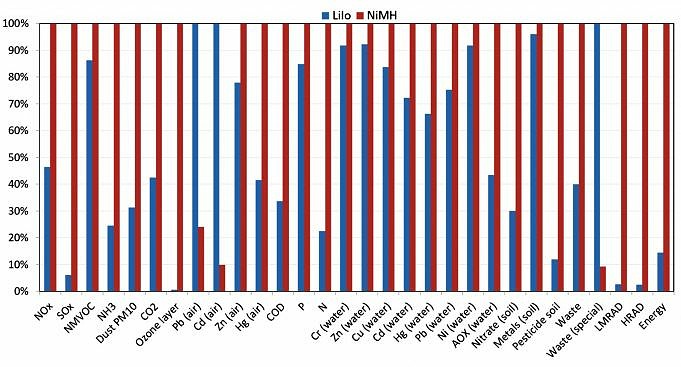All of us are looking for batteries that will do the job.
We like it when a battery lasts and has enough power, no matter what power tool we are using or how small the household is.
We’ll be highlighting the pros and cons for both NiMH and lithium ion batteries today so that you can make an educated decision.
Lithium Ion Battery – Quick Summary
- Keep charge for a long time
- Storage charges are not refundable
- More voltage per cell
- Always available for recharge
- Not available in all sizes
- Different chargers for different types of batteries
The Benefits Of Lithium Ion Battery
Lithium ion battery are rechargeable batteries. But unlike the previous models, which used lithium in its pure metal state, lithium ion batteries are made from different compounds.
Because they can recharge and keep a charge, they are more commonly used in power tools, smart phone, and electric cars. This video will explain everything.
The main benefit of using lithium ion batteries for power tools is their higher energy density.
These batteries can also be operated at a higher voltage, around 3.7 volts.
This allows one to produce more voltage with a single cell than a NiMH. Because of its complex design, the lithium ion batteries are manufactured with special circuitry to protect them from overcharging.
This design allows the battery to keep its charge even after being stored for a prolonged period.
Cons Of Lithium-ion Batteries
These batteries are not available in the standard sizes used in tools such as AA,C, and D. They also need special chargers to be charged. Leakage and other problems can result from using the wrong charger.
- Storage charges are lost
- Voltage depletion over time
NiMH Batteries Have Many Benefits
NiMH batteries are designed to be used in conjunction with other alkaline batteries. However, there are a few modifications that can make them more efficient.
They operate at a lower voltage than lithium ion batteries, which are 1.2 volts. This means that you will need to use more cells to produce the same voltage as a lithium-ion counterpart.
NiMH batteries are well-known for their ability to charge devices for longer periods of time than other batteries. They also have a high voltage that does not fluctuate like other rechargeable batteries. This means they can maintain a constant voltage no matter how low the remaining charge.
You can therefore expect maximum power for as long as the battery lasts, which is quite a feat.
NiMH batteries aren’t very sophisticated. They are therefore available in standard sizes such as AA, C, and D. This makes them available for everyday use as well as power tools.
They are generally also cheaper to replace than they are to buy, which is a plus.
Cons Of NiMH Batteries
NiMH batteries can lose up to 5% of their charge per day while in storage.
This means you will need to charge it right before you use it. It is not always convenient in an emergency situation. Many believe that NiMH batteries have a’memory effect’, which is technically incorrect.
However, the batteries can suffer from voltage depression and voltage depletion. This is sometimes mistaken for a memory effect. It is caused when batteries are recharged that haven’t been fully charged. This causes them to develop lower voltage power.
This shouldn’t be an issue if you have a good charging and storage system.
What Is Better: NiMH Or Lithium Ion?
We are now back at the original question.
Which of the two types of batteries is best? The answer depends on the power tool it is being used for. Although lithium ion batteries offer some clear advantages, they might not be in the right size (an obvious deal-breaker), and they are generally more expensive.
NiMH batteries on the other hand require more maintenance/replacement but also work well for most jobs. NiMH batteries are also cheaper to purchase, which is a huge plus.



